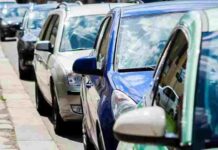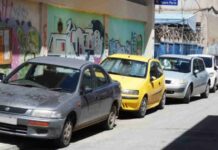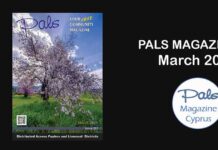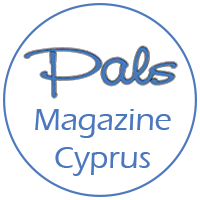
Answers to frequently asked questions about pandemic prevention measures (measures valid: 10-31 January 2021)
A. Movements:
1. What hours does the travel ban apply?
The travel ban is valid from 9 pm until 5 am the next day.
2. For what reasons is movement allowed during curfew hours (9 pm to 5 am the next day)?
The movement of persons during curfew hours is allowed for the following reasons:
- for work purposes to and from the workplaces with the presentation of Form A , completed and signed by the employer.
- for urgent and urgent purposes , ie to go to a medical center or hospital or pharmacy or veterinarian for medical emergencies and to go to the emergency room for people who are unable to self-care or who have to self-protect.
3. How many times per day will exceptional travel be allowed?
Exceptional travel will be permitted twice per day by texting 8998 for the cases referred to in question 5. Persons over the age of 65 may use Form B for their exceptional travel.
It is clarified that for the purposes of going to and from work for work purposes the sending of sms is not required, but the employee must present the Form A, signed by his employer.
4. How many categories for exceptional travel are there, by sending an SMS ?
There are eight (8) categories for exceptional travel, by sending an SMS. Category 8 includes subcategories as shown in question 5 below.
5. In which cases is the exceptional movement allowed, by sending an sms ?
Exception for movement by sending sms is allowed in the following cases:
– Category 1: Visit to a doctor / medical center or for blood donation or to perform a laboratory test for COVID-19 (rapid test or PCR) or to go to a pharmacy or for vaccination at the Vaccination Centers.
– Category 2: Purchase or supply of essential goods / services to and from companies / services, the operation of which has not been suspended, including take-away and drive-through from restaurants, excluding the purchase / supply of spirits (until 8:30 pm).
– Category 3: Going to a bank, to the extent that electronic transaction is not possible
– Category 4: Absolutely necessary visits to government services, services of the wider public sector and the Local Government, when the work can not be done electronically.
– Category 5: Assistance to relatives and / or fellow citizens who are unable to self-serve or fall into groups that have to self-protect or are in self-restraint and / or places of compulsory restraint.
– Category 6: Physical exercise, provided that the two adults do not exceed the minor children and are limited to the areas where access is allowed. Persons are also allowed to move to another Province, in addition to the one where they reside permanently (first residence), for individual sea sports, provided that they do not exceed two people, except for minor children accompanied by their parents. The transfer is for a reasonable period of time and the persons must return to their permanent residence the same day, no later than 9 pm . Residents of Provinces in which they have access to the sea, can not go to another Province for physical sports.
– Category 7: Transfer to a place of religious worship for the purposes of individual prayer or for ceremonies, such as funerals, weddings, baptisms (maximum number of people in ceremonies 10 people).
– Category 8 (upon presentation of the necessary evidence valid for each case):
- Relocation of divorced or separated parents, which is necessary for seamless communication and contact between parents and children. Individuals must provide a Judicial Decree proving that they are responsible for the custody of their children on the specific days / hours of travel.
- Specialized treatments for people with disabilities or people with chronic diseases, together with their companion.
- Movement for transport of hoplite to and from the camp.
- Transfer to and from Larnaca and Paphos Airports for the transfer of persons, with the presentation of a proof (ticket) which proves the day and time of arrival / departure.
- Transfer of farmers and stockbreeders, provided that they submit the form of hectare and capital subsidy from the KOAP or, in case this does not exist, a relevant certificate from the District Office of Agriculture.
- Transfer of persons to animal shelters for the care of animals, provided that they present a certificate certified by a recognized animal welfare organization, as well as a relevant proof of notification of each movement to the Veterinary Services.
All persons moving for any of the above reasons must bring with them an identity card or passport, for identification purposes in case of control by the Competent Authorities.
6. In which cases is exceptional travel allowed without sending an SMS ?
Movement without sending sms is allowed:
- for trafficking in people with disabilities and people on the autism spectrum, along with their companion.
- for a walk for the needs of a pet, meaning that it will be limited to the area adjacent to the house (within a radius of 500 m from their home) and as long as they do not exceed two people, except for minor children accompanied by their parents.
- for transportation of minors to and from infants, nurseries, kindergartens, pre-primary and special education.
7. Is movement allowed between the Provinces?
Yes, movement between Provinces is permitted provided that the purpose for which the movement is made falls within the points of use of SMS which normally does not exceed three (3) hours, with certain reasonable exceptions, such as movement for hunting and fishing purposes, for transport of hoplites and for movement to and from the airport, for funerals, for the care of the elderly and non-self-employed in a Province other than that of permanent residence or for agricultural and veterinary purposes.
8. How many people can get in a private vehicle and how many passengers can the MMM carry?
Private vehicles can be driven by members of the same family (household) , including minor children of the family, depending on the capacity of the vehicle, without the use of a mask. In cases of transport by vehicle of persons from different households , it is allowed to ride in the vehicle up to three (3) persons , including the driver, with the necessary use of a mask. For travel purposes for work with a private vehicle with a capacity of more than five (5) people (eg construction workers, transporters, etc.), it is allowed to ride up to four (4) people , with the necessary use of a mask. For work purposes and in case the private vehicle is of capacity under five (5) people, up to three (3) people are allowed to ride, with the necessary use of a mask .
The maximum number of people in Public Transport (buses, taxis, etc.) is determined by an announcement of the Ministry of Transport.
B. Social gatherings:
9. Are social gatherings allowed in homes?
Social gatherings in homes are prohibited , except for those permanently residing in them. It is understood that it is forbidden to hold lunch / dinner in houses for weddings and baptisms.
At the same time, it is allowed to be present in houses for the purposes of:
- custody of minors and people with disabilities for the period / duration where the physical presence of parents / guardians is necessary in their workplace (eg babysitters, babysitters, guardians, carers, etc.).
- assistance to people who are unable to self-serve (medication, care of people, food supply, etc.). It is understood that such persons should take all measures of personal protection and remain only for a reasonable period of time required for the care of the individual, so as not to put him in danger.
- by professionals such as electricians, plumbers, domestic helpers, gardeners, oil painters, etc., as well as health professionals (physiotherapists, speech therapists, occupational therapists, community nurses, etc.), only for the reasonable period of time required to complete their work.
10. Are gatherings allowed in public and private gathering places?
Access and social gatherings to public and private gathering places are prohibited , and in particular to squares, parks, dams, picnic areas, marinas, beaches, sidewalks, etc.
Access is only allowed to parks, linear parks and beaches exclusively for physical exercise purposes .
C. Sports:
11. Are sports championships allowed?
It is allowed to hold the matches of the professional championships of A ‘Category, without the presence of spectators . It is understood that the use of locker rooms is allowed only on the day of the match.
All other tournaments, as well as sports activities for people under 18, are suspended.
12. Do indoor and outdoor sports facilities remain in operation?
All sports facilities, except for the training facilities of the teams of the professional championships of the First Division and the National Teams, as well as the dance schools and other related schools, remain closed. It is understood that the sports facilities used for the professional championships of B ‘and C’ Category are allowed only for training purposes.
Therefore, the use of sports facilities other than the teams mentioned above is not permitted, such as shooting ranges, tennis courts, basketball, golf, karate, coke, dance schools, and other related schools.
13. What applies to swimming pools?
The swimming pools remain closed for physical sports purposes . The only cases where the use of swimming pools is allowed are for therapeutic purposes in the presence of a health professional (eg physiotherapist) for a reasonable period of time required to complete the treatment.
14. Are trainings allowed in sports facilities for team and / or individual sports?
Training in sports facilities, except for the A ‘category championships and the National Teams, is allowed only for the teams that participate in the B’ and C ‘Category professional championships . It is understood that the use of locker rooms is prohibited .
It is allowed to train in sports facilities with a maximum number of five (5) people, including the coach / trainer .
It is understood that training is allowed in indoor and outdoor outdoor sports facilities of high performance athletes , who are included in the list of the Cyprus Sports Organization or who qualify for the Olympic Games, without the use of locker rooms / gyms and any indoor sports and indoor sports facilities. that the participants in the training will not exceed five (5) people, including the coach / trainer.
15. In which cases is physical exercise / training allowed?
Physical exercise / training is allowed only in public outdoor areas that are allowed access under the decree. Specifically in parks, linear parks and beaches and meaning that the participants do not exceed two (2) people and physical exercise / training is done within a reasonable time .
Indicatively,
- It is allowed to train a karate athlete on the beach or in a park only with his coach.
- It is allowed to train a person on the beach, park with or without equipment (eg TRX, step, fit ball, weights, etc.), provided that no more than two people, including the trainer.
- swimming in the sea is allowed only during the hours when movement is allowed, provided that they do not exceed two people.
D. Ecclesiology:
16. Are the temples / religious places of worship allowed to function?
The Divine Liturgy in the sacred temples / religious places of worship is performed without the presence of believers . It is clarified that the faithful can come to the religious places of worship for individual prayer (simultaneous physical presence of up to 10 people per religious space), provided that the observance of health protocols (distances, masks, maximum number of people) will be ensured.
It is clarified that the presence of believers is also prohibited in the courtyard of the temples / religious places of worship.
17. Are religious ceremonies such as weddings, baptisms and funerals allowed?
Religious ceremonies (weddings, baptisms and funerals) are performed with a maximum of 10 people, including the androgyne . It is understood that the 10 people do not include priests and other church staff.
In cases of funeral, the maximum number of 10 people concerns both the religious ceremony and the burial.
In case of individual prayer, the measures should be observed and should not exceed 10 people inside the religious place of worship.
E. Businesses / Services:
18. How will private service companies operate?
Private service companies (eg law firms, accounting firms, insurance companies, service companies, etc.), with the exception of the essential services set out in the Decree, work remotely. The physical presence of employees is allowed within the professional premises , which does not exceed 15% of the total number of staff with a minimum presence of three (3) people, if the employer so wishes, and a maximum of 20 people .
The rest of the staff works through teleworking at home. It is understood that the number is rounded up.
For example,
– in a company with 10 people, up to 3 people can work with a physical presence, if the employer so wishes.
– in a company with 50 employees, up to 8 people can work with a physical presence.
– in a company with 200 employees, the maximum number of persons who can work simultaneously with a physical presence may not exceed 20 people.
19. Is the operation of retail businesses allowed?
It is prohibited to operate retail businesses to serve the public with a physical presence on the premises. It is understood that these companies can sell products through e-commerce (online) and place telephone orders with home delivery / delivery.
Certain categories of retail businesses (eg service stations, medical equipment and medical supplies companies, laundries, nurseries and florists, etc.) may be able to serve in person. A detailed list of companies will be included in the Decree.
20. Which companies / sites / industries are suspending their operation?
The operation of the following companies is suspended:
- Barbers and hairdressers,
- Beauty institutes,
- Tattoo centers,
- Theaters, cinemas, auditoriums, open-air and open-air amphitheaters,
- Dining areas *,
- Nightclubs,
- Shopping malls, department stores **,
- Playgrounds,
- Theme parks, amusement parks, go-kart tracks, paintball tracks,
- Archaeological sites, museums, historical sites,
- Zoos and natural habitats,
- Betting and gambling agencies,
- Casino,
- Amateur driving schools, driving school schools, professional driving school schools (Professional Competence Certification Schools / Centers), Vocational Training Schools and Vocational Training Schools for drivers of dangerous goods vehicles,
- Car Dealerships ***,
- Gyms, dance schools, other related schools.
* Provided that the focus areas can offer only home delivery services ( delivery ) at the time set by the companies themselves and take – away and drive – through until 9pm . Take – away and drive – through for the purchase of alcoholic beverages is prohibited .
** It is understood that retail stores within shopping malls may sell products through e-commerce with home shipping / delivery.
*** It is understood that in the case of car dealerships, only the operation of repair shops ( service ) is allowed . At the same time, car repair shops and other related companies remain in operation, as well as companies providing roadside vehicle technical inspection (MOT) services.
21. Which companies do not suspend their operation?
The companies that remain in operation, in compliance with the relevant health instructions and protocols, are defined in the relevant list to be issued by the Ministry of Labor.
22. What applies to the operation of construction sites and other related companies?
Construction sites and other companies with related activities continue to operate in compliance with health protocols. A relevant list of companies that remain in operation will be issued by the Ministry of Labor.
23. What about the operation of beverage and food retail businesses and popular markets?
The operation of retail trade of beverages and food is allowed, such as supermarkets, mini-markets, fruit shops, bakeries, butchers, fishmongers, grocery stores.
It is clarified that the sale of retail items (eg clothes, shoes, cosmetics, electrical appliances, linen, toys, etc.) to the above retail companies of beverages and food is prohibited .
Pharmacies, supermarkets, mini-markets, fruit shops, butchers, fishmongers and grocery stores, from the time of their operation until 10 in the morning, serve only people over 65 and people with disabilities .
The public markets are fully operational at 50% of their capacity. It is forbidden to operate public markets that sell clothes, linen and / or other products, as well as street vending.
The companies operating in the supply chain remain in operation.
24. Do hotels and other tourist accommodation remain open?
The hotels / tourist accommodation operate exclusively for the accommodation of persons who do not have their permanent residence in Cyprus and fall under the provisions of the Decree (paragraphs 2.9 to 2.16). Reservations are not allowed for persons residing permanently in the Republic of Cyprus .
It is understood that the dining areas inside the hotels and tourist accommodation remain open:
- only for the service of the persons who are hosted in their premises,
- with a maximum number of people in total up to 75 persons (indoor and outdoor),
- six (6) people per table,
- observing the measure of one person per 3 sq.m. indoors and one person per 2 sq.m. outdoors.
25. How will the public and wider public sector and Local Government work?
The public and wider public sector and the Local Government work with the necessary security personnel in the offices for the management of urgent issues and the service of citizens to cover emergencies. The released staff remains at home in order to work with the teleworking method. In defining security personnel, the need to restrict employees belonging to high-risk groups should be taken into account . The services defined by the Decree as the essential services are excluded from the above regulation.
26. How will the Courts work?
The operation of the Courts and the Registries is regulated by a circular issued by the Supreme Court.
27. How will the National Guard camps operate?
The operation of the National Guard camps will be regulated on the basis of guidelines issued by the Ministry of Defense.
28. Are conferences, exhibitions, assemblies, press conferences, examinations allowed?
Conferences, assemblies, exhibitions and press conferences are suspended. It is understood that they are allowed to be performed online.
It is allowed to conduct examinations and / or meetings of State Authorities and / or meetings of Authorities and / or Services and / or Bodies and / or Bodies, in places for which approval is given by the Ministry of Health.
F. Hospitals / Medical and Diagnostic Centers / Nursing Homes / Rehabilitation Centers / Other Closed Structures:
29. How will the hospitals work? Will doctor visits be allowed? Will surgeries be performed?
Both public and private hospitals continue to operate with a ceiling that determines their maximum occupancy rate at 70% of beds, including ICU beds, according to instructions issued by the Ministry of Health.
Patients’ visits to doctors and / or medical and diagnostic centers are allowed, without the presence of an escort. It is understood that in cases of minors, the accompaniment of one of the two parents / guardians is allowed, while in cases where the patient can not self-serve and move alone, it is allowed to be accompanied by an additional person.
The surgeries will be performed according to the ceiling and the guidelines issued by the Ministry of Health.
30. Will the Dental Clinics continue their operation?
The Dental Clinics remain in operation to deal only with emergencies and only after an appointment. It is understood that the patient is accompanied by only one person only if he / she is a minor or a person who can not serve himself / herself.
31. Do health professionals, such as physiotherapists, occupational therapists, speech therapists, inpatient nurses, etc., continue to work?
Yes, health professionals, and in particular physiotherapists, occupational therapists, speech therapists, home care nurses, continue to provide services , as long as they follow the health protocols.
32. What applies to nursing homes and other structures?
The ban on visits to residents of nursing homes, rehabilitation centers, other nursing homes and other closed structures is still in force. In very exceptional cases, the Premises Management may grant exemptions for visits within a reasonable time.
G. Education:
33. How will the education be done in public and private Primary Schools, Gymnasiums, Lyceums, Technical Schools and Higher and Higher Education Institutions?
Education at all levels will be done through distance education , according to the guidelines sent to the schools by the Ministry of Education.
In cases where the physical presence of students is required for the purpose of conducting laboratory courses to prepare students for examinations in Higher and Higher Education Institutions, the laboratory courses are conducted in physical presence, in compliance with health protocols.
34. What applies to nurseries and kindergartens, daycare centers, kindergartens and pre-primary and special education?
The above remain in operation in accordance with the protocols issued by the competent Ministries of Labor and Education.
35. What applies to the operation of tutoring centers, private training centers and how will the private afternoon classes be taught?
Tutoring and private training centers remain closed and education is provided online via e-learning / distance learning. Teachers who offer homework or private lessons (teacher and a student) should apply e-learning / distance learning for the period the measures are in force.
The measure for conducting online courses is applied indicatively in cases such as: music lessons (musical instruments, vocals, choir, etc.), painting, art, gymnastics, dance, theater, foreign languages, remedial teaching of school lessons (mathematics, chemistry, physics, history), etc).
Source:pio.gov.cy









